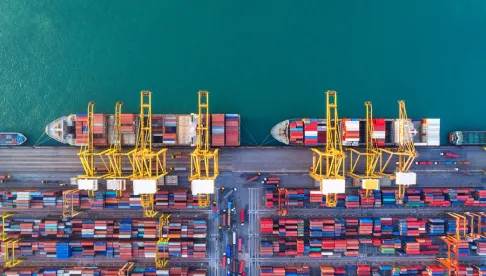On June 2, 2021, the U.S. Department of Energy’s (DOE) Office of Energy Efficiency & Renewable Energy (EERE) announced that the United States, Denmark, and Norway joined forces with the Global Maritime Forum and the Mærsk Mc-Kinney Møller Center for Zero Carbon Shipping to lead a new Zero-Emission Shipping Mission. This effort is part of Mission Innovation, “a global initiative to catalyze action and investment in research, development and demonstration to make clean energy affordable, attractive and accessible to all this decade.” Supported by the governments of India, Morocco, the United Kingdom, Singapore, France, Ghana, and South Korea, Mission Innovation aims to accelerate the Paris Agreement's progress toward net-zero emissions. According to DOE’s EERE, international maritime shipping represents approximately two to three percent of the world’s total annual greenhouse gas (GHG) emissions. Without addressing these emissions from maritime shipping, emissions could increase anywhere between 50 and 250 percent by 2050. Therefore, the Zero-Emissions Shipping Mission aims to:
-
Develop, demonstrate, and deploy zero-emission fuels, ships, and fuel infrastructure across the value chain;
-
Ensure that by 2030, ships capable of running on hydrogen-based zero-emission fuels, such as green hydrogen, green ammonia, green methanol, and biofuels, make up at least five percent of the global deep-sea fleet measured by fuel consumption; and
-
Ensure that by 2030, at least 200 of these zero-emission fueled ships are in service and using these fuels across their main deep-sea shipping routes.



 />i
/>i

